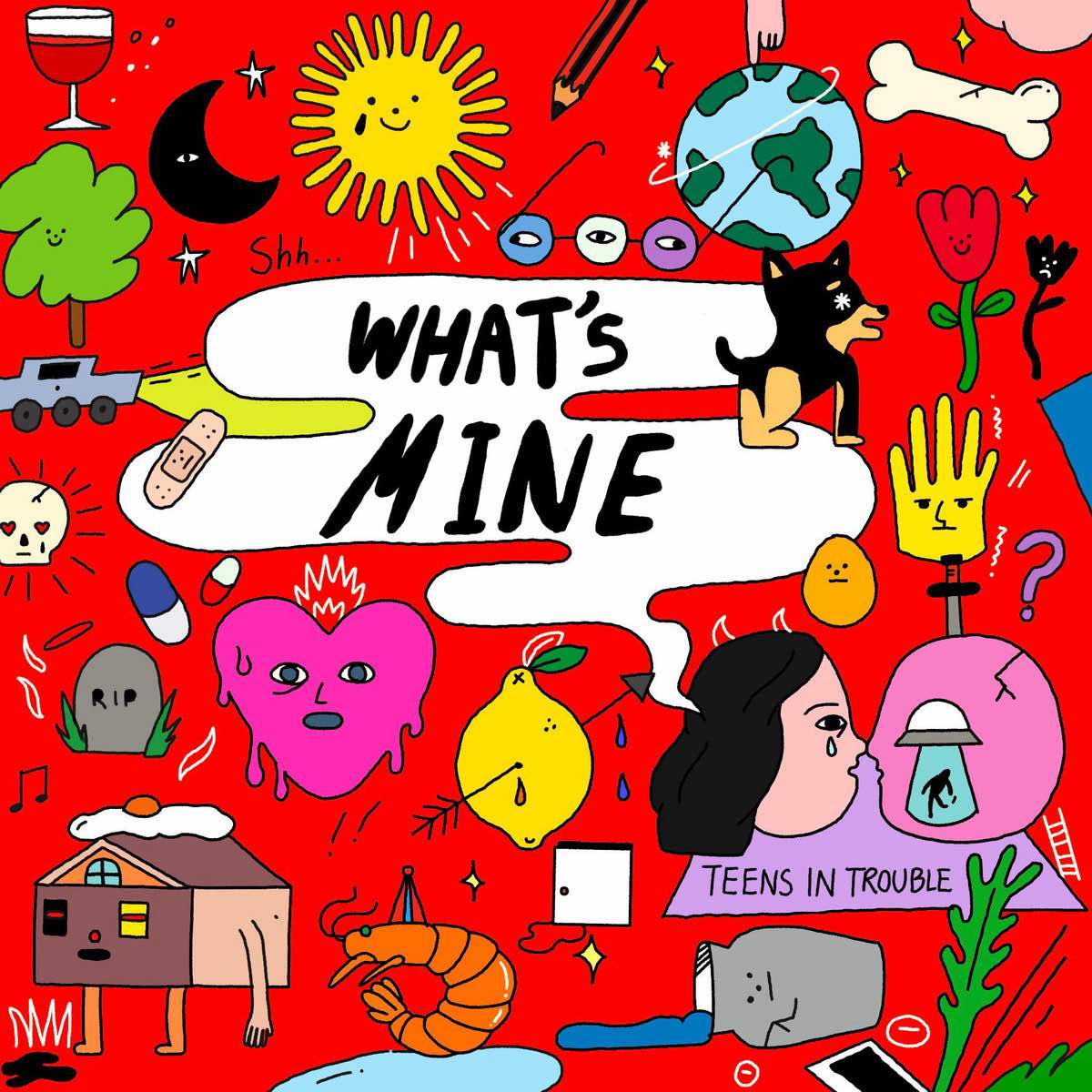Teens in Trouble
What’s Mine
ASIAN MAN
It might not be possible to actually travel back in time, but the moment What’s Mine, the debut album from Teens in Trouble, begins, it’s like a wormhole to the 1990s opens up. That’s because the band—which is really just Raleigh, North Carolina’s Lizzie Killian backed by a few of her musically inclined friends—channels the sound of that decade on these 10 sublime tracks, albeit through a contemporary lens. Playful but serious, downtrodden but anxious, retro but thoroughly modern, resigned but energetic and hopeful, Killian sets her insecurities to melodies that belie their inspiration.
Opener “You Don’t Want to Mess with Me,” for example—which features PUP’s Stefan Babcock on vocals and guitar, emphasizing certain PUP-esque qualities to its poppy jerkiness—centers around the idea of self-preservation when it comes to relationships (whether that’s romantic or platonic), but oozes a kind of recklessness musically. It’s followed by “Awkward Girl,” a self-reflective ode about being just that, which rushes forward with a delightfully self-assured confidence. “I already was a weirdo before the world turned / And now I am an even bigger one,” sings Killian. It’s irreverent and humorous, but there’s also a raw vulnerability bubbling beneath the song’s surface.
Similarly, “Brave,” which leans as much into grunge as it does to classic ’60s girl groups, admits to emotional weakness at its start (“I’m unrecognizable, I can’t stop crying,” Killian admits in its first line) but also rails against it, while “In My Dreams” is a scorched, broken heart that measures the distance between possibility and reality and keeps beating anyway despite the vast black hole between those two things. But there is some hope here, too, not least in “Playlist,” which extols the joy and connection that comes from sharing music with someone you care deeply about and the rush you get when someone loves the same thing as you in the same way.
The record ends, though, on its most dour note—the plaintive, melancholy “I’m Not Perfect,” a gorgeous lament about letting go that fades slowly into nothingness the same way that everyone you’ve ever loved will also do. To some extent, that’s what the “what’s mine” of the album title represents—it’s both everything and nothing all at once. In other words, it’s an incredibly accurate rendering and description of existence.







